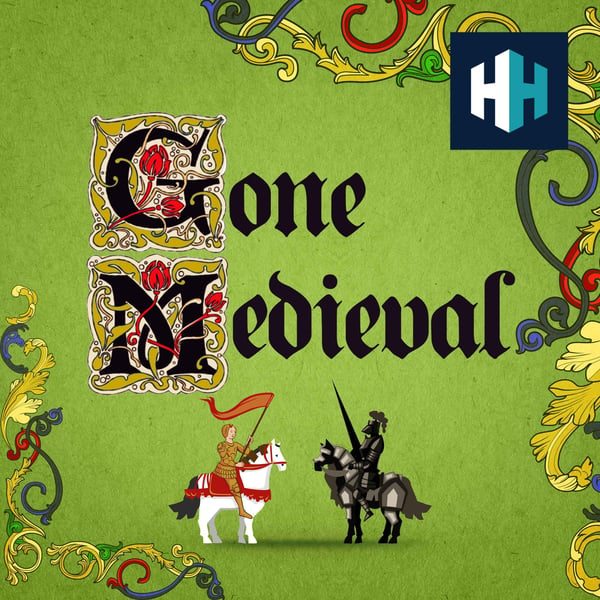Julian of Norwich: England's First Woman Writer?
Gone Medieval
History Hit
4.6 • 2.2K Ratings
🗓️ 26 May 2023
⏱️ 31 minutes
🧾️ Download transcript
Summary
The writings of Julian of Norwich are the earliest surviving English language works by a woman and the only surviving English language works by an anchoress. But her life - particularly prior to taking on her role at Saint Julian's Church in Norwich - is shrouded in mystery and it has been widely debated.
In this episode of Gone Medieval, Matt Lewis talks to author Claire Gilbert. Her new book I,Julian is a powerful fictional autobiography of Julian - as mother, mystic and radical.
This episode was edited by Joseph Knight and produced by Rob Weinberg.
If you’re enjoying this podcast and are looking for more fascinating Medieval content then subscribe to our Medieval Monday newsletter here.
If you'd like to learn even more, we have hundreds of history documentaries, ad free podcasts and audiobooks at History Hit - subscribe today! To download, go to Android or Apple store.
Hosted on Acast. See acast.com/privacy for more information.
Transcript
Click on a timestamp to play from that location
| 0:00.0 | Welcome to Gone Medieval from History Hit. To listen to all of our episodes, |
| 0:03.9 | add free and watch hundreds of history documentaries, download the History Hit app, |
| 0:08.4 | or go to historyhit.com forward slash subscribe. And if you're an Apple listener, |
| 0:13.4 | you can subscribe for new, add free episodes within the app. |
| 0:23.0 | Welcome to this episode of Gone Medieval, I'm Matt Lewis. Julian of Norwich lived through |
| 0:28.3 | the second half of the 14th century and into the 15th. She's most famous for being associated |
| 0:33.6 | with her writings, the earliest English language text attributed to a woman, |
| 0:38.5 | and the only writings by an anchoress that we have. Julian's life, particularly prior to taking |
| 0:43.6 | on her role at St Julian's Church in Norwich, is shrouded in mystery and it's been widely debated. |
| 0:50.2 | So to learn more about this fascinating figure, I'm joined today by Claire Gilbert, |
| 0:54.0 | whose new book, I Julian, is a fictional autobiography of Julian's life that definitely |
| 0:58.9 | weaves together the known facts. Thank you very much for joining us, Claire. |
| 1:02.4 | Hello, it's lovely to be here. It's great to have the chance to talk about someone like Julian. |
| 1:06.4 | And I think you're going to start us off with a little reading from your book just to set the |
| 1:09.6 | scene, which is fantastic. So thank you very much. So this is the passage which follows Julian |
| 1:14.8 | losing her husband and daughter to the second wave of the pestilence, as they called it, |
| 1:20.4 | in 14th century, which particularly took children and young men. And she feels guilty because it |
| 1:26.0 | happened while she escaped to the forest for a bit of time for herself. In the time that follows, |
| 1:31.6 | I move as one who is walking through thick slime. The air is heavy, my body is heavy, |
| 1:38.7 | every task is a burden to me and every person I meet is a stranger. I have nothing to live for, |
| 1:46.5 | and I do not wish to live. Some servants return. The household revives a little. |
| 1:52.8 | The merchant thing begins again under John's direction, but I eat only because the maid brings me |
... |
Please login to see the full transcript.
Disclaimer: The podcast and artwork embedded on this page are from History Hit, and are the property of its owner and not affiliated with or endorsed by Tapesearch.
Generated transcripts are the property of History Hit and are distributed freely under the Fair Use doctrine. Transcripts generated by Tapesearch are not guaranteed to be accurate.
Copyright © Tapesearch 2025.

